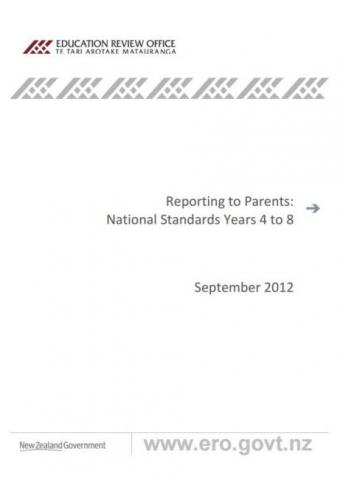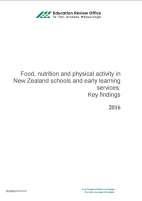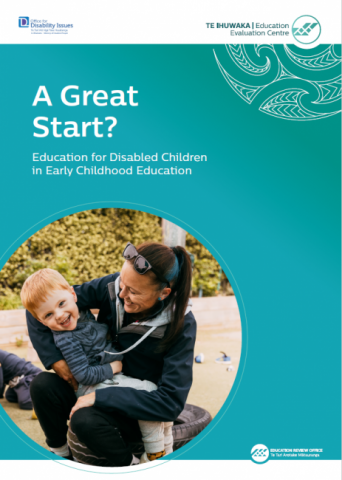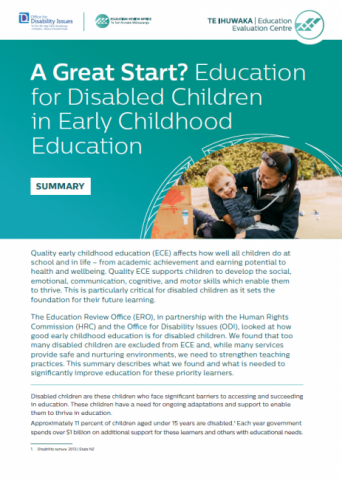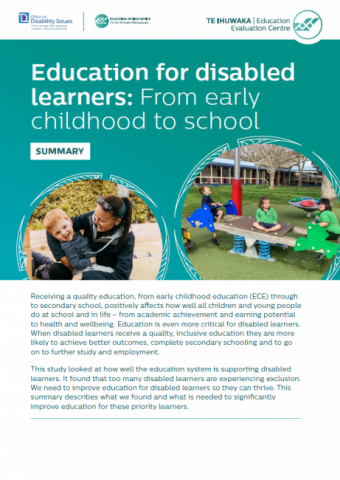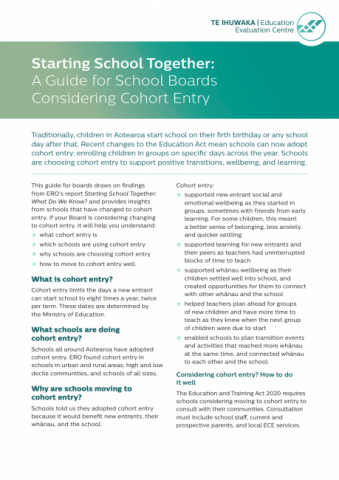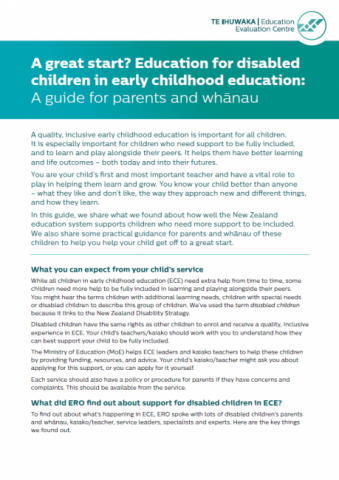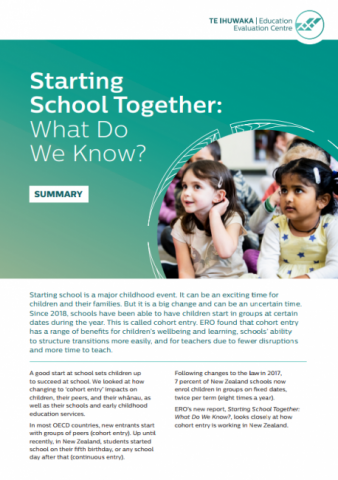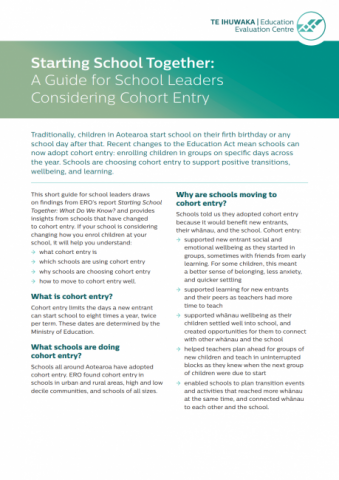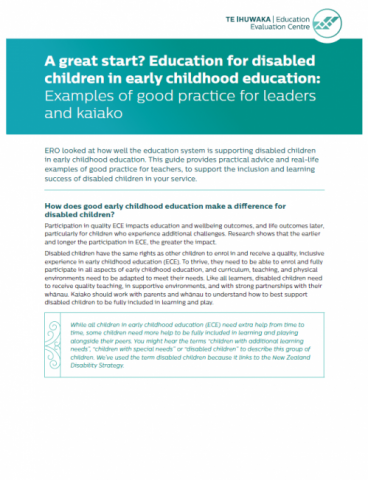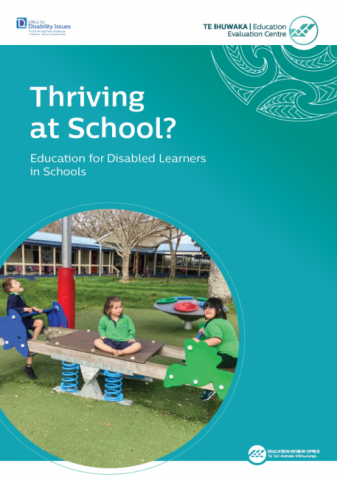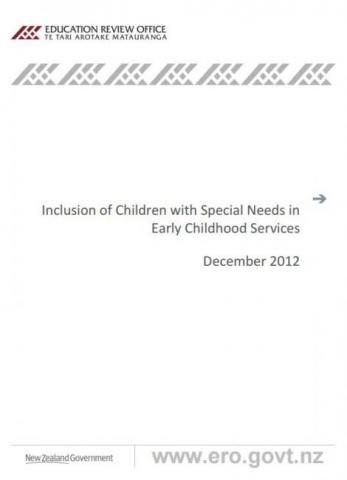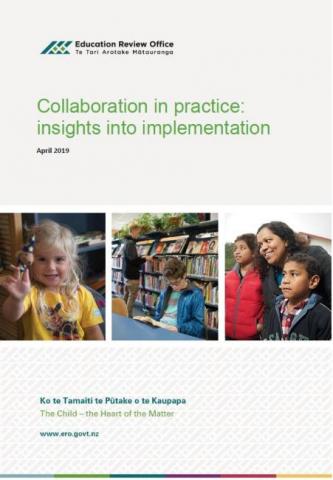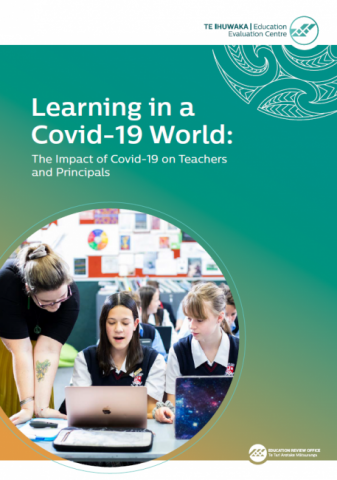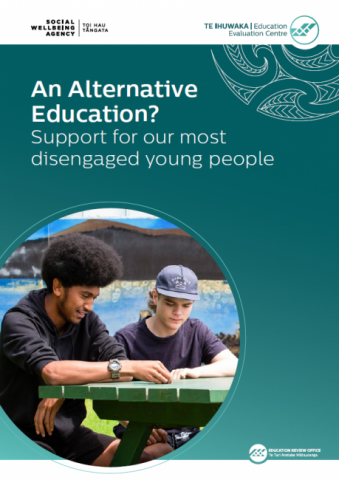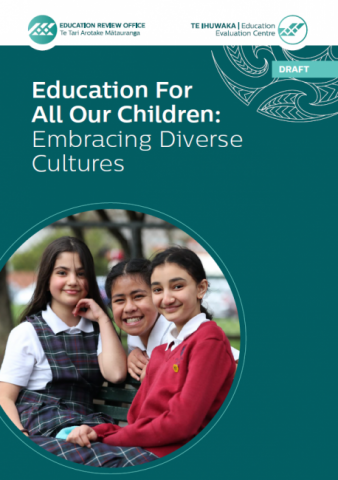Reporting to Parents: National Standards Years 4 to 8
Published: 11 Sep 2012
This ERO report is part of a series of reports being published over three years about aspects of the implementation of the National Standards in English-medium schools, with students in Years 1 to 8. The report focuses on schools’ progress with reporting to parents in relation to the National Standards.
- Audience:
- Parents
- Schools
- Content type:
- Research
- Topics:
- Schools
- Parents
- National Administrative Guidelines (NAGs)
